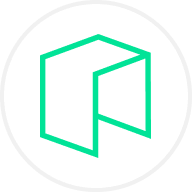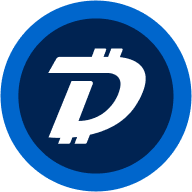
GAS
Precio de GAS
$2.9960
-$0.07400
(-2.42 %)
Cambio de precio en las últimas 24 horas

¿Cuál es tu opinión sobre GAS hoy?
Comparte tu opinión aquí con un pulgar hacia arriba si te sientes alcista sobre la moneda o un pulgar hacia abajo si te sientes bajista.
Vota para ver los resultados
Información del mercado de GAS
Cap. de mercado
La cap. de mercado se calcula al multiplicar la oferta circulante de una moneda por su último precio.
Cap. de mercado = Oferta circulante × Último precio
Cap. de mercado = Oferta circulante × Último precio
Oferta circulante
Monto total de una moneda disponible al público en el mercado.
Clasificación de capitalización del mercado
El ranking de una moneda en términos de valor de la cap. de mercado.
Máximo histórico
El precio más alto que alcanzó una moneda en su historial de trading.
Mínimo histórico
El precio más bajo que alcanzó una moneda en su historial de trading.
Cap. de mercado
$197.75M
Oferta circulante
65,093,581 GAS
100.00 % de
65,093,581 GAS
Clasificación de capitalización del mercado
134
Auditorías

Última auditoría: 26 sept 2022
Alto 24 h
$3.0760
Bajo 24 h
$2.9820
Máximo histórico
$150.00
-98.01 % (-$147.00)
Última actualización: 16 ene 2018
Mínimo histórico
$0.55000
+444.72 % (+$2.4460)
Última actualización: 13 mar 2020
Calculadora de GAS


Rendimiento del precio de GAS en USD
El precio actual de GAS es $2.9960. En las últimas 24 horas, GAS ha disminuyó un -2.41 %. Actualmente tiene una oferta circulante de 65,093,581 GAS y una oferta máxima de 65,093,581 GAS, lo que le da una cap. de mercado totalmente diluida de $197.75M. En la actualidad, la moneda GAS ocupa la posición 134 en la clasificación de cap. de mercado. El precio de GAS/USD se actualiza en tiempo real.
Hoy
-$0.07400
-2.42 %
7 días
+$0.0070000
+0.23 %
30 días
-$0.38000
-11.26 %
3 meses
-$1.4990
-33.35 %
Conversiones de GAS populares
Última actualización: 27/03/2025, 20:38
| 1 GAS a USD | $2.9910 |
| 1 GAS a PHP | ₱171.69 |
| 1 GAS a EUR | €2.7727 |
| 1 GAS a IDR | Rp 49,585.54 |
| 1 GAS a GBP | £2.3129 |
| 1 GAS a CAD | $4.2701 |
| 1 GAS a AED | AED 10.9859 |
| 1 GAS a VND | ₫76,535.31 |
Acerca de GAS (GAS)
La calificación ofrecida es una calificación agregada que OKX recopila de las fuentes proporcionadas y solo tiene fines informativos. OKX no garantiza la calidad ni la precisión de las calificaciones. No tiene la finalidad de ofrecer (i) asesoramiento o recomendación de inversión, (ii) una oferta o solicitud para comprar, vender ni hacer holding de activos digitales, o (iii) asesoramiento financiero, contable, legal o fiscal. Los activos digitales, incluidas las stablecoins y NFT, implican un alto grado de riesgo, pueden fluctuar mucho e incluso perder su valor. El precio y el rendimiento de los activos digitales no están garantizados y pueden cambiar sin aviso. Tus activos digitales no están cubiertos por un seguro contra posibles pérdidas. Los retornos históricos no son indicativos de retornos futuros. OKX no garantiza el reembolso del capital ni de los intereses. OKX no ofrece recomendaciones de inversión ni de activos. Debes considerar cuidadosamente si el trading o holding de activos digitales es adecuado para ti según tu situación financiera. Consulta a un profesional sobre asuntos legales/fiscales/de inversiones si tienes preguntas sobre tus circunstancias específicas.
Ver más
- Sitio web oficial
- Github
- Bloquear explorador
Acerca de los sitios web de terceros
Acerca de los sitios web de terceros
Al utilizar el sitio web de terceros (third-party website, TPW), aceptas que cualquier uso del sitio web de terceros estará sujeto y se regirá por los términos del sitio web de terceros. A menos que se indique expresamente por escrito, OKX y sus afiliados (OKX) no están asociados de ninguna manera con el propietario u operador del sitio web de terceros. Aceptas que OKX no es responsable de ninguna pérdida, daño ni cualquier otra consecuencia que surja del uso del sitio web de terceros. Ten en cuenta que el uso de un sitio web de terceros puede ocasionar una pérdida o disminución de tus activos.
Preguntas frecuentes sobre GAS
¿Puedo comprar GAS al precio que deseo?
Sí, la función de orden de límite de OKX te permite comprar GAS al precio que prefieres. Selecciona tu par de trading de GAS preferido en la página de trading de OKX, ingresa el precio y el monto que deseas en la pestaña "Límite" y luego haz clic en "Comprar GAS" para realizar la operación de orden de límite. La operación de GAS se ejecutará solo si se alcanza el precio que especificaste.
¿Es la moneda GAS una buena inversión?
La tenencia de GAS otorga a los usuarios acceso a la blockchain Neo, lo que les permite crear e implementar varias aplicaciones descentralizadas (dapps), ejecutar contratos inteligentes y obtener GAS como premio por participar activamente en la red Neo.
¿Dónde puedo comprar GAS?
Compra fácilmente tokens GAS en la plataforma de criptomonedas de OKX. El par de trading disponible en la terminal de trading spot de OKX es GAS/USDT.
También puedes hacer swap de tus criptomonedas existentes, como XRP (XRP), Ethereum (ETH), Tether (USDT) y USD Coin (USDC), por GAS sin comisiones y sin slippage de precios al usar la función Convertir de OKX.
¿Cuánto vale 1 GAS hoy?
Actualmente un GAS vale $2.9960. Si lo que buscas son respuestas y opiniones sobre la acción de precio de GAS, estás en el lugar indicado. Explora los últimos GAS gráficos y responsabilidad de trade con OKX.
¿Qué son las criptomonedas?
Las criptomonedas, como GAS, son activos digitales que operan en libros mayores públicos llamados blockchains. Obtén más información sobre las monedas y los tokens que se ofrecen en OKX y sus distintos atributos, como los precios y los gráficos en tiempo real.
¿Cuándo se inventaron las criptomonedas?
Debido e la crisis financiera de 2008, el interés por las finanzas descentralizadas creció. Bitcoin ofrecía una solución novedosa al ser un activo digital seguro en una red descentralizada. Desde entonces, también se han creado muchos otros tokens como GAS.
¿El precio de GAS subirá hoy?
Consulta nuestra Página de predicción del precio de GAS para predecir los próximos precios y determinar tus objetivos de precios.
Deslinde de responsabilidades
El contenido social de esta página ("Contenido"), que incluye, entre otros, a las publicaciones y las estadísticas proporcionadas por LunarCrush, provienen de terceros y son proporcionadas "tal y como están" únicamente con fines informativos. OKX no garantiza la calidad ni la precisión de los contenidos, y los contenidos no representan las opiniones de OKX. No tiene la finalidad de ofrecer (i) asesoramiento o recomendación de inversión, (ii) una oferta o solicitud para comprar, vender ni hacer holding de activos digitales, o (iii) asesoramiento financiero, contable, legal o fiscal. Los activos digitales, incluidas las stablecoins y NFT, implican un alto grado de riesgo. El precio y el rendimiento de los activos digitales no están garantizados y pueden cambiar sin aviso. OKX no ofrece recomendaciones de inversión ni de activos. Debes considerar cuidadosamente si el trading o holding de activos digitales es adecuado para ti según tu situación financiera. Consulta a un profesional sobre asuntos legales/fiscales/de inversiones si tienes preguntas sobre circunstancias específicas. Para más detalles, consulta nuestras Condiciones de uso y Advertencia sobre los riesgos. Al utilizar el sitio web de terceros ("TPW"), aceptas que cualquier uso del TPW estará sujeto y se regirá por los términos del TPW. A menos que se indique expresamente por escrito, OKX y sus afiliados ("OKX") no están asociados de ninguna manera con el propietario u operador del TPW. Aceptas que OKX no es responsable de ninguna pérdida, daño ni cualquier otra consecuencia que surja del uso del TPW. Ten en cuenta que el uso de un TPW puede ocasionar una pérdida o disminución de tus activos. Es posible que el producto no esté disponible en todas las jurisdicciones.
Calculadora de GAS


































Sociales